Mr. and Mrs. Stockroom say farewell to their longtime customers
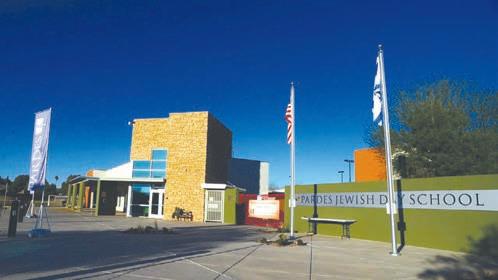
BUSINESS
Corporations can support Jewish education through tax credits




Mr. and Mrs. Stockroom say farewell to their longtime customers

Corporations can support Jewish education through tax credits



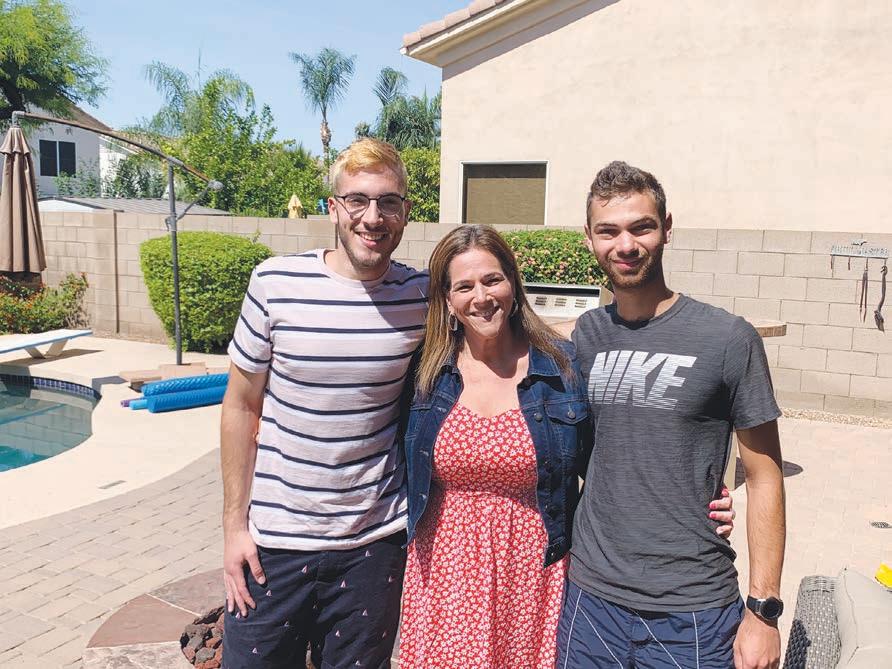
Before the April 27 shooting at Chabad of Poway in California, the regional director of the Anti-Defamation League of San Diego, Tammy Gillies, was told by her colleagues in law enforcement that it wasn’t a question of if a shooting would happen, but when.
“I heard that and I thought, ‘Yeah, OK, it’s a question of when.’ But until it happens in your town, you really don’t think it will,” Gillies said. After the Poway shooting, Gillies was one of several ADL representatives summoned to accompany law enforcement during victim interviews. “I walked into the command center and saw the chief, the sheriff, the special agent in charge from the FBI, people that I have been working with for years. When they looked at me, I saw the heartbreak in their eyes that this happened to my community.”
Gillies was the special guest speaker at ADL Arizona’s Town Hall on Anti-Semitism, which took place at Temple Solel on June 13. The event was moderated by ADL Arizona Regional board member Bradley Pack, and also featured law enforcement representatives from both the federal and local levels.
The shooting at the Chabad of Poway, which resulted in one death and three injuries, took place exactly six months after the Tree of Life*Or L’Simcha synagogue building massacre in Pittsburgh. After the attack in Poway, Gillies coordinated with local law enforcement to act as a liaison with the Jewish community.
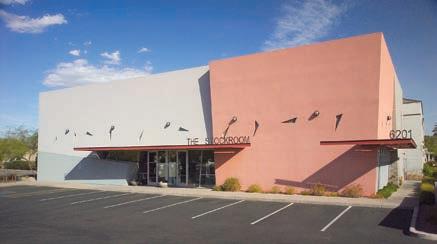
“I was sent to the rabbi’s house and I was assisting law enforcement to interview the victims,” Gillies said in an interview before the town hall.
Valley of the Sun JCC Chief Operating Officer Kim Subrin has worked with the Jewish Agency for Israel since 2001, assisting with its program that brings young Israeli emissaries to the U.S. But in the 18 years that she’s collaborated on the project, Subrin never hosted shlichim last month, when Subrin wel comed two visiting Israelis into
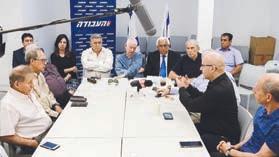
First-time host of summer shlichim encourages more families to get involved
CONTINUED FROM PAGE 1
“Talking to those folks, and allowing them to just talk about their experience, was the start of some healing and offers some small comfort.”
The Monday after the shooting, an estimated 4,000 people gathered for a community vigil at Poway High School to honor the victims and stand in solidarity. Gillies — who has been with ADL San Diego for 12 years and served as its regional director for 10 — was incredibly touched by the gathering. But even with communal acts of solidarity, Gillies said, it’s not easy to quell an understandable fear. Her advice to institutions is to find a balance between providing effective security while also being welcoming to the larger community.
“Right now everybody wants to create an armed fortress at their synagogue,” Gillies said. “The rise of anti-Semitism is the biggest concern people talk to me about right now. I know that here in Arizona, [the ADL] national audit of anti-Semitic incidents showed there was a 23% increase in 2018. I think we can speak up and shine a light on anti-Semitism by asking our leaders — whether it’s a rabbi or church leaders or our political leaders — to stand up and speak out.”
The ADL’s Audit of Anti-Semitic Incidents: Year in Review, 2018 showed that Arizona has seen a rise in anti-Semitic behavior for the third year in a row.
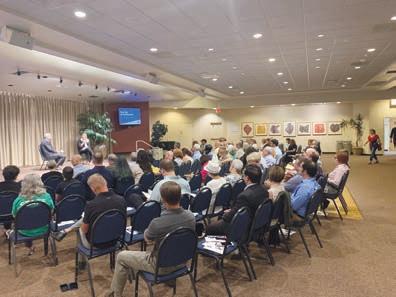
Gillies believes that vigilance is the key to truly combating anti-Semitism. She told the audience to say something if they see something, and reminded her listeners that report-


ing an incident could help the police.
“Our biggest hurdle is finding out, but when we find out we pull out all the stops,” said Phoenix Police Detective Brandy Willingham, one of two detectives on the Phoenix Police Department’s bias crime unit. “If you can take anything away, it’s that if you see something, even if you think it’s not a crime, please call and report it.”
Willingham’s recommendation was echoed by the other speakers. Ashton Skinner, education director at ADL Arizona, told the audience how important communication is for preventing more tragedies. “We’d rather get all your calls about potential incidents than none at all. We don’t have the time, energy or capacity to be as vigilant on all these issues without your help.”
Skinner also presented different ways to combat anti-Semitism, from becoming involved in local politics to showing off some of the educational programs ADL offers schools, such as the No Place For Hate initiative.
Gillies appreciated that many people came to the town hall given that increasing antiSemitism is a difficult subject to talk about. She added that focusing on the positives can help one deal with the negatives.
“It can be really discouraging and a little bit frightening,” Gillies told the audience. “For me, when I feel that way, I go out to one of our educational events and see what we’re doing with students, and I see how they want to make changes in their worlds and it inspires me. We can change hearts and minds. We can do this.”
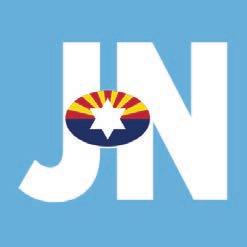
January 4
January 11
January 18
January 25
February 1
February 8
February 15
February 22
March 1
March 15
March 29
April 5
April 12
April 19
May 3
May 17
May 31
June 7
June 21
July 12
August 9
August 30
September 6
September 13
September 20
September 27
October 4
October 18
November 1
November 15
December 6
December 13
December 20
PUBLISHER | Jewish Community Foundation of Greater Phoenix EDITORIAL DIRECTOR | Liz Spikol



MANAGING EDITOR | Rich Solomon
STAFF WRITER | Nick Enquist
CONTRIBUTORS | Joel Zolondek
ADVERTISING SALES CONSULTANTS | Jodi Lipson

CIRCULATION | Bill Sims
GRAPHIC DESIGNER | Frank Wagner
ADVERTISING: 11 a.m., Friday 3 days prior to publication
Jaime Roberts, Publisher | 2013-2016
Florence Newmark Eckstein, Publisher | 1981-2013
Cecil Newmark, Publisher | 1961-1981
Pearl Newmark, Editor | 1961-1981
M.B. Goldman, Jr., Founder | 1948-1961
“It’s been a dream. I’ve watched all these other families do it and I wanted to be a host,” said Subrin. “I’ve always had a big connection to all the shlichim who’ve come, and I usually take them out for a weekend or something like that, but this year I finally got the opportunity to host and it’s been great.”

Raz Bidkar, 21, and Aviv Ben Sira, 24, this year’s Jewish Agency shlichim, are living with Subrin for their full summer tenure. Both started working as counselors at Shemesh Summer Camp as soon as they arrived.
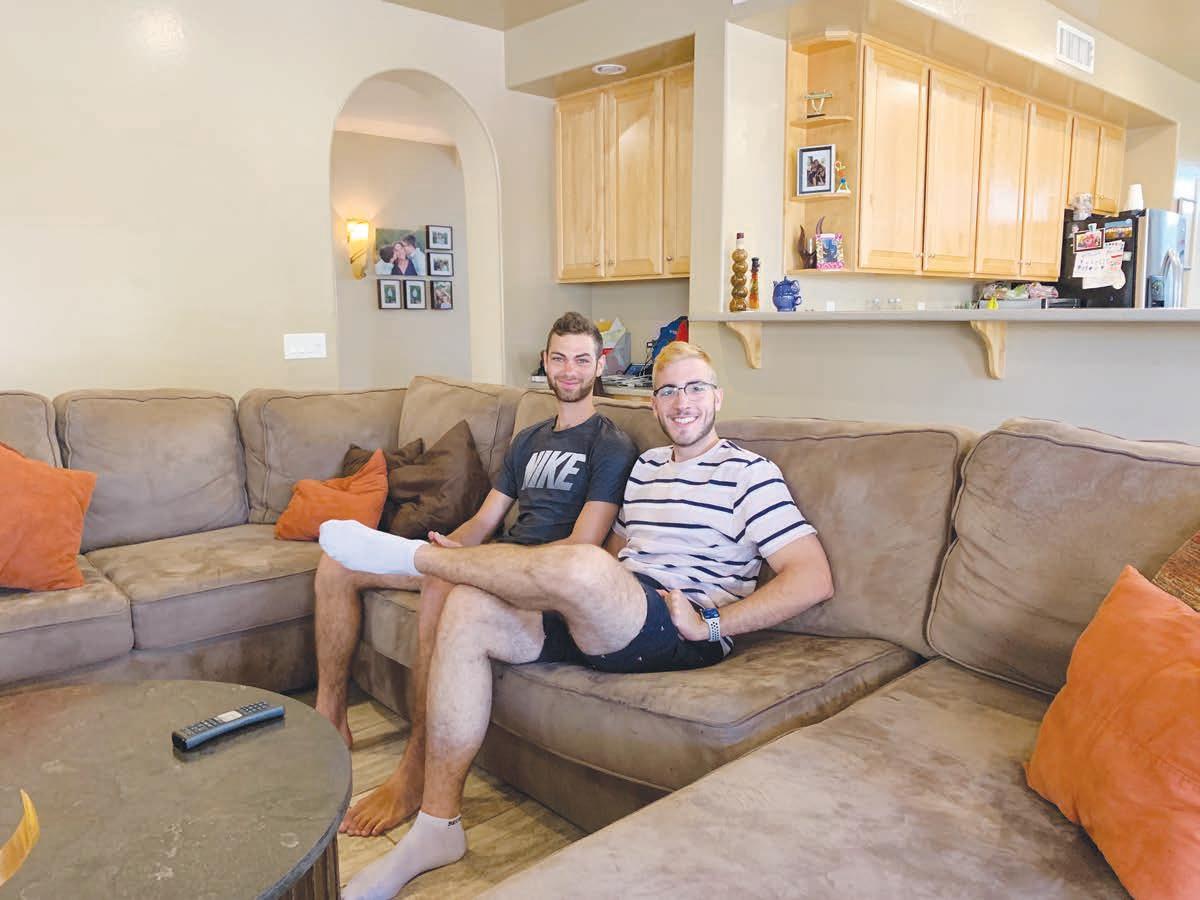
Bidkar and Ben Sira went through a rigorous process to be chosen as shlichim



The Jewish Agency hand-picks Israeli youth leaders with experience in the army or national service. Once they were selected from a crowded field of applicants, Bidkar and Ben Sira had extensive interviews with Subrin and VOSJCC Director of Camping Services Jessica Pineda. Ben Sira, who’s from Kibbutz Afikim in the north of Israel, did his interview with Subrin via video from New
Zealand during an around-the-world trip. In Bidkar’s case, he completed his IDF service just a month before arriving
Now Ben Sira is a counselor at Shemesh Camp’s Ruach on the Go program, which allows campers and counselors to travel off-site to places like Disneyland, Catalina Island and California Adventure. Bidkar
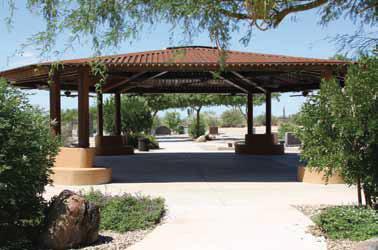

ing him to use the skills he learned from his mother, a professional baker in Bet Shemesh, and from his own experience working in Bet Shemesh restaurants. Bidkar has been cooking traditional Israeli and Middle Eastern dishes, such as falafel and hummus, for campers and teaching them how to make the dishes themselves.
Subrin is grateful to have the two in her home, calling herself their American “mom.” Her only regret is that fewer people are willing to be host families these days. Fewer host families available bringing Israeli
“It didn’t used to be that way, but for some reason people are now skittish about opening their homes,” Subrin said. “It’s important for me that people understand what a huge benefit it has been for my kids.”

Though at first her two children were slightly nervous about having strangers in their house, it didn’t take long for them to become attached to their Israeli guests. Now the only anxious conversations are about how they’ll all keep in contact after the summer ends.




Neither Ben Sira nor Bidkar had never been to the U.S. before this summer, and while they’re enjoying their stay in Arizona, they are still acclimating to the differences in customs and culture. It’s helped that Subrin has taken her role as host seriously.
“We explored new horizons when we got here, in my opinion,” said Bidkar. “The culture is so different that I’m very pleased to learn about it, and also teach about my culture. I think it’s important to let everyone know that most people will not get any chance of meeting a new culture if they don’t travel or don’t participate in the camp, because they’re limiting themselves to their own horizons.”
Ben Sira also has praise for the program.
“I think it’s really beautiful. I can see the best parts of America with you and you can see the best parts of Israel with me,” he said. “At the JCC, there are a lot of campers and counselors who aren’t Jewish that now know a lot more about Israel because of me.” JN
"I THINK IT’S REALLY BEAUTIFUL. I CAN SEE THE BEST PARTS OF AMERICA WITH YOU AND YOU CAN SEE THE BEST PARTS OF ISRAEL WITH ME."
— AVIV BEN SIRA
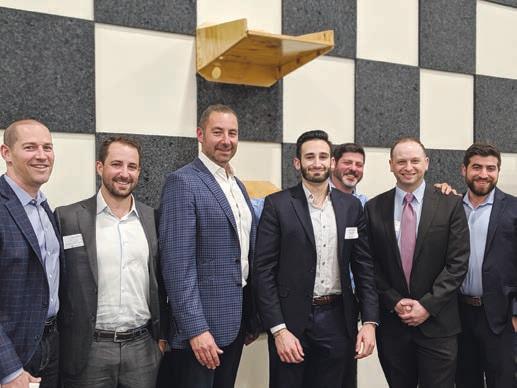 RICH SOLOMON | MANAGING EDITOR
RICH SOLOMON | MANAGING EDITOR


Last month, NowGen hosted its first Men’s Professional Panel, which offered the opportunity to hear successful businessmen talk about how Judaism has informed their careers. Co-chairs Chase Alyeshmerni and Jesse Rozio, along with the help of the Jewish Federation of Greater Phoenix, put the event together. Moderated by Ben Ellis, founder and designated broker of E&G Real Estate Services, the panel included Geoff Balon, legal advisor to the Mesa Police Department; Jay Feitlinger, founder and CEO of StringCan Interactive; Jonathan Hoffer, managing partner of SMS Financial; and Greg Saltz, founder of GPS Retail Advisor.
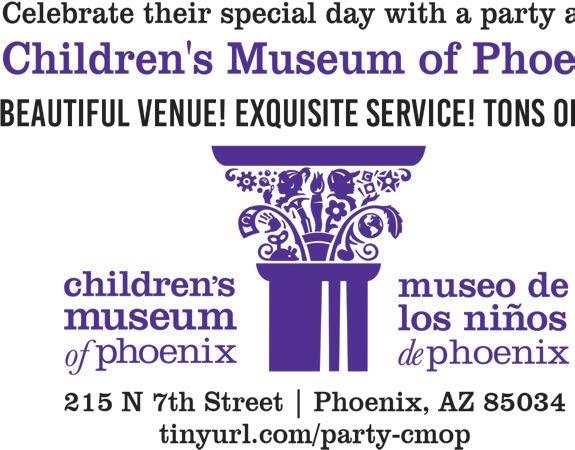
Ellis asked the panelists to talk about Judaism has propelled their careers, what Jewish principles they apply in business
, how Judaism helped them navigate tough business situations and who their Jewish mentors have been.

The speakers provided varied perspectives. Feitlinger talked about a time when a business associate embezzled money, and the years it took years for him to pay the debt off — an effort motivated by his Judaism. Balon spoke of the ways Judaism helped him in his challenging role as a public servant. Saltz talked about a time when he prayed in Israel for guidance and was approached with a beneficial deal not long after. Hoffer
The Stockroom, a family-owned and operated office supply store since 1986, will close at the end of the month when the president and co-owner of the company, Les Moskowitz, changes gears. It’s a bitter-sweet end, said Les’ wife, Linda, The Stockroom’s vice president and co-owner.
offered advice on donations, explaining how he approaches the mitzvah of giving 10% when multiple causes put in requests. There will be a NowGen Women’s Professional Panel in September. JN
“They called me ‘Mrs. Stockroom’ and they called Les ‘Mr. Stockroom.’ Thirtythree years is a very long time, and our customers have become family. When they come into the store, they know us by name; they know our children, and now our grandchildren. We know their families, too. It’s really been a neighborhood business.”
The Stockroom first opened on the corner of Seventh Street and Glendale Avenue
then moved to its current location — 6201 N. Seventh St. — in 2000 for more space. In addition to selling office supplies to their commercial accounts, The Stockroom also managed office solutions, shipping services and a green office initiative.
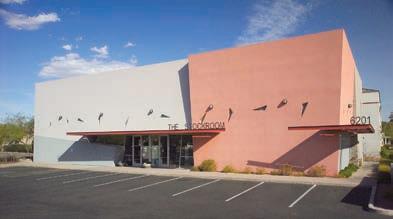
The store had partnerships with several local organizations, including Congregation Or Tzion, the Bureau of Jewish Education, Jewish Free Loan and Habitat for Humanity.
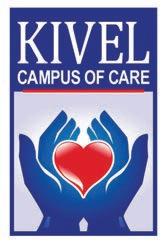
“I am very proud of my husband, that he embraced the concept of tikkun olam,” Linda said. “He really helped other communities and organizations. Les is so philanthropic, it was unbelievable.”
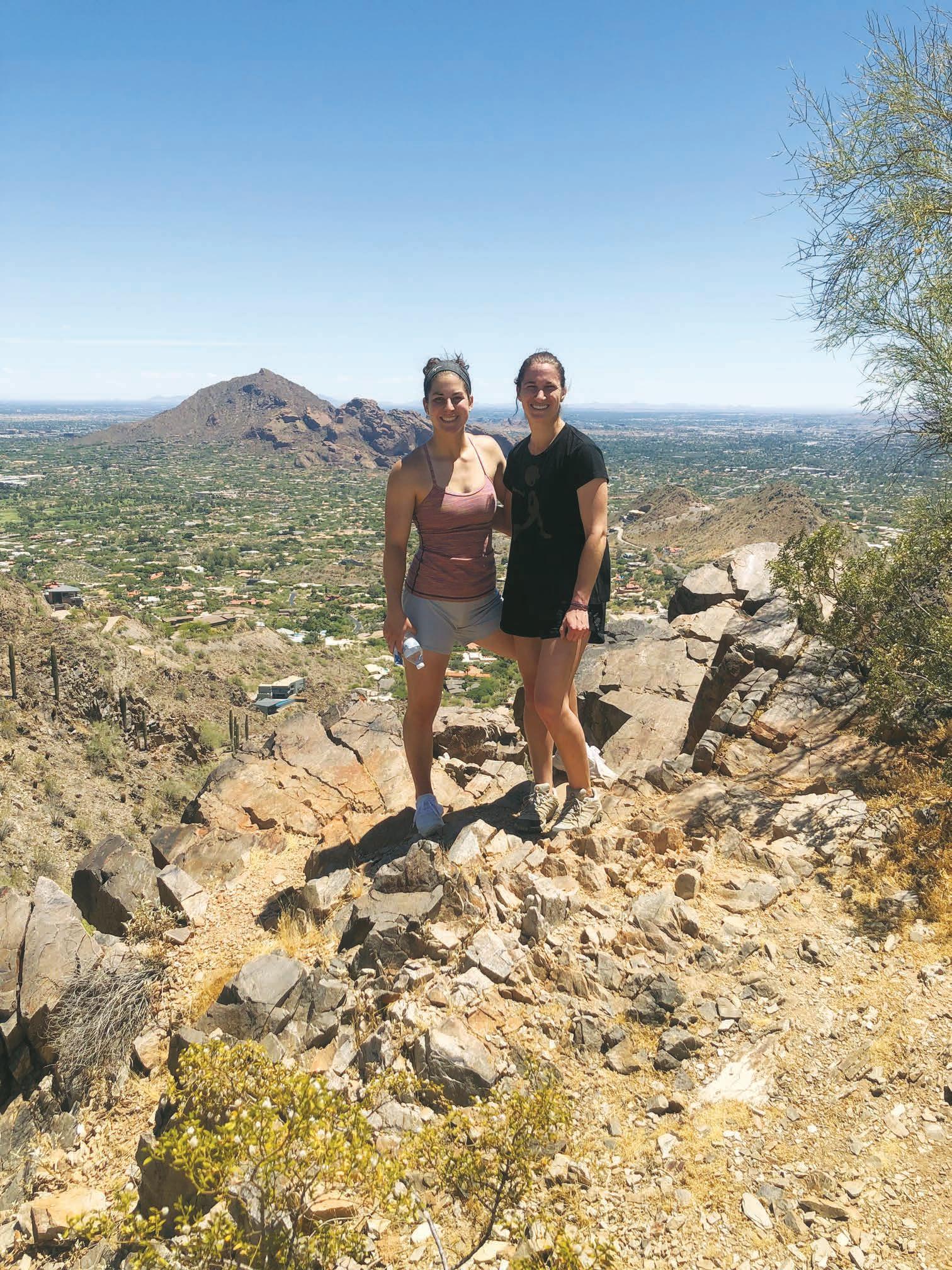
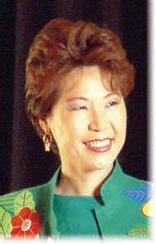
Although the store will go away, Mr. Stockroom will still be working, managing commercial accounts for Office Products & Computer Supplies, a Mesa-based company. Some of his clients will be the same, and he’ll be able to make his own schedule,
allowing him and Linda time to transition into retirement.
Although Linda and Les will still be around, The Stockroom will be missed. Many long-time customers took to social networking site Nextdoor to say farewell.
“It was just unbelievable that people posted about how much the store meant to them,” Linda said. “Just tremendously kind words and accolades.” JN
AUGUST15-18,2019
Jewishsingles (21+)ofallobservancelevelsfrom acrossthecountrywillgathertogetherfora weekendfullof love, connection,and discovery.

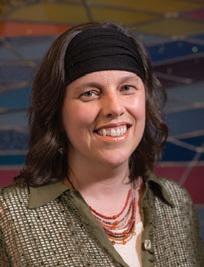
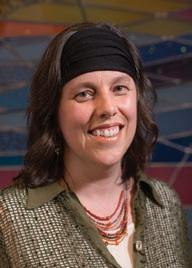
EARLYBIRDPRICING:NOW-JULY15! FULLWEEKEND,SINGLEDAY,AND

HEART2HEARTAZ.COM

One might not expect a Phoenix-area bakery to compete with East Coast bakeries when it comes to bagels, but the website Nosher found such a gem in Phoenix. On May 1, Nosher posted “The best bagels in unexpected places around the United States,” and Odelay Bagel Co. was one of seven bakeries listed.
For Odelay’s owner and general manager, Ryan Probst, the news was a welcome surprise.
“They didn’t write to us to say that we were on the list but we were super excited when we finally found out,” Probst said. “After the article came out, we got slammed with customers for three days and I kept asking, ‘What is going on?’ and then finally someone showed us the article on their phone.”
In the post, Nosher wrote that Odelay bagels (which are not kosher) are “widely considered to be as good as any you’ll find in New York.” The food blog praised Odelay for the unusual creations that it sells alongside the classics. One such example is the black pepper and Parmesan bagel. Throw in some garlic-sriracha cream cheese for a truly unique flavor experience.
The shop offers more than a dozen flavors and sells upwards of 200 bagels per day. The dough is never frozen and there are no bagel machines in the kitchen. For Probst, creating the perfect batch of bagels all comes down to the right dough mix, time and temperature.
“The most polarizing piece of bread out there is a bagel, it divides people,” Probst said. “It’s a long process to make a bagel, and it’s definitely not easy. You can’t screw up, because if you screw up today, you don’t have any bagels tomorrow.”
Every bagel at Odelay is handmade and takes 24 hours. Probst keeps his dough recipe simple: salt, yeast, oil, honey for sweetener and distilled water. The dough is then proofed four times; once as a giant ball, again as smaller balls, then overnight once they’re shaped into bagels and one more time just before the bagels are boiled in malted water.
Probst’s venture into making bagels was not a passion he planned for, but rather something that popped into his head on a whim. Before baking, he worked as an air conditioner technician, performed guitar in the Tempebased band Dry River Yacht Club and was preparing for law school in either Chicago or New Jersey. While making the decision on where to go, Probst realized that he wasn’t excited for a career in law. As simple as that,
he decided to make bagels.
“I think, subconsciously, I just didn’t want to go back to school,” Probst explained. “I got in touch with some friends and we started baking and I fell in love with it.”
Shortly after deciding his new career, Probst began working at a commercial bakery, Jonathan Robins, in Tempe. Then he was baking bagels in his spare time. He soon understood how to make a good bagel, but he wasn’t satisfied there. Probst wanted to understand both the science of baking and the business of running a bakery.
His first bagel enterprise was a wholesale business called The Proof Bakehouse, where he would sell to restaurants like Desert Roots Kitchen. In addition to restaurants, The Proof Bakehouse sold to other entities, such as churches and synagogues.
In 2015, Probst opened Odelay Bagel Co. in Ahwatukee, just west of the I-10 highway. The name Odelay is a play on the Spanish slang word “órale,” which is roughly equivalent to “right on” or “wow” in English. Patrons can expect a relaxed and friendly atmosphere at Odelay, with coffee from local roasters and other, non-bagel, menu choices. Gluten-free muffins are available, and while Probst is quick to say that Odelay is not a Jewish deli, it does have lox to go with the bagels.
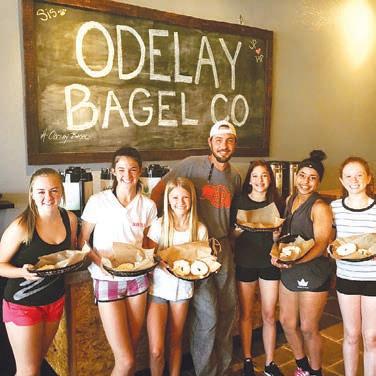
Probst’s goals right now are to keep up with the demand and possibly expand Odelay Bagel Co. into a larger space.
“It was great to receive notice in that article, because it’s important for my staff and myself to know that all our hard work is appreciated and that we’re doing a good job,” he said. “When you spend so much time working on something, something like that is very gratifying.”
Sen. Lindsey Graham (R-S.C.) is viewed by most as a stalwart, rational and articulate friend of the state of Israel, who is laser-focused on maximizing the mutual benefits of the U.S.-Israel relationship. As one of the vocal supporters of Trump administration policies, he is known to have the president’s ear, particularly on sensitive issues of foreign policy. So it was attention-worthy last week when Graham sought to cool the talk of Israel annexing part or all of the West Bank, and
U.S. and Israeli governments, the Palestinian Authority and most of the world community. But things have changed. Through a combination of intransigence, frustration and diplomatic failures, even the words “two-state solution” have fallen out of favor. Indeed, Israel’s ambassador to the United States, Ron Dermer, was reported to be pressing Graham (without success) to omit the phrase “two-state solution” from a nonbinding, bipartisan resolution in support of “two states for two
to settle difficult problems by negotiation has been all but abandoned.
This controversial approach was further advanced last week when U.S. Ambassador to Israel David Friedman told The New York Times: “Under certain circumstances, I think Israel has the right to retain some, but unlikely all, of the West Bank.” Since Friedman was referring to unilateral Israeli action, rather than a result of negotiations, his comments increased the drumbeat
Jewish umbrella organizations are not the same as the individual groups they represent. As such, the relationship between the organization and its members can be complex — depending on the sensitivity of leadership and how far the membership is ready or willing to go.
That’s the case of the National Council of Young Israel, one of the well-known brands in Orthodox Judaism. Modern and Zionist, with some 150 member synagogues, it has been a comfortable home for Jews with a center-right religious focus since its founding in 1913. Last week, though, the Young Israel of Toco Hills congregation in Atlanta voted to leave the national Young Israel organization, with 93% of voting synagogue members opting to separate.
“I CAN’T ENVISION A ONE-STATE SOLUTION. IT WON’T WORK. I MEAN, YOU’D HAVE TO DISENFRANCHISE THE PALESTINIANS, THAT WON’T WORK. IF YOU LET THEM VOTE, AS ONE STATE, THEY’LL OVERWHELM THE ISRAELIS. THAT WON’T WORK. SO IF YOU WANT TO HAVE A DEMOCRATIC, SECURE JEWISH STATE, I THINK YOU HAVE TO HAVE TWO STATES TO MAKE THAT WORK.”
—SEN. LINDSEY GRAHAMvery publicly spoke against the idea of creating a single state between the Mediterranean and the Jordan.
“I can’t envision a one-state solution,” Graham said. “It won’t work. I mean, you’d have to disenfranchise the Palestinians, that won’t work. If you let them vote, as one state, they’ll overwhelm the Israelis. That won’t work. So if you want to have a democratic, secure Jewish state, I think you have to have two states to make that work.”
That common-sense approach was, historically, the policy of
peoples” that Graham and Sen. Chris Van Hollen (D-Md.) plan to introduce in the U.S. Senate.
Over in the House, a similar resolution has 123 co-sponsors out of 235 in the Democratic caucus. But Republican support for the effort that envisions a Palestinian state alongside Israel, with security guarantees for Israel, are evaporating. Instead, unilateral government action such as the expansion of settlements and annexation of territories (euphemistically called “extending sovereignty”) are being promoted here and in Israel, and the idea of efforts
toward annexation and away from a negotiated resolution.
It is for all of these reasons that Graham’s very public comments about, explanations for and support of a two-state solution are so significant. He and his co-sponsors may be swimming against the tide, but they bring clear arguments, sound policy and the promise of hope for the survival of a negotiated resolution to the most thorny of political issues in the Middle East.
We wish Sens. Graham and Van Hollen success in their bipartisan effort. JN
Letters must be 200 words or less and include the writer’s full name, address and phone number or email address. Letters are edited for content, style and space. Send your letters to Editor, Jewish News, 12701 N. Scottsdale Road, Suite 206, Scottsdale, AZ 85254; email letters@jewishaz.com.
The decision wasn’t a surprise. In recent years, the Young Israel national leadership has been moving right in its politics and its Zionism — and has taken positions that have upset segments of its diminishing member ranks. For example, in February, NCYI issued a statement defending Prime Minister Netanyahu’s controversial brokering of a racist party’s merger with another right-wing Israeli party. That is now ancient history in Israel. But Young Israel’s gratuitous support for the merger, which was almost universally condemned, deepened the growing fault lines within the organization.
Twenty-two Young Israel synagogues condemned the national movement’s embrace of racism. “In recognition of the current, highly divisive political environment in the United States, Israel and beyond, we … call upon NCYI leadership to immediately cease making all political pronouncements,” the synagogues’ statement said.
One of the dissenting rabbis, Rabbi Adam Starr, leads Young Israel of Toco Hills, which has now changed its name to Kehillat Ohr Hatorah. Earlier this year, he expressed concern to JTA about the
THERE ARE MANY JEWISH ORGANIZATIONS THAT TAKE STRONG POLITICAL POSITIONS. INDEED, IT SEEMS THAT SOME SPEND MORE TIME ISSUING PRESS RELEASES THAN ANYTHING ELSE.
National Council opining on hot-button political issues. “A synagogue organization should not be making deeply divisive political statements on our behalf.”
Of course, there are many Jewish organizations that take strong political positions. Indeed, it seems that some spend more time issuing press releases than anything else. And they are certainly free to do so.
But when a member-driven organization moves from its basic function or founding principles and purports to speak in the name of its members on issues that are either unrelated to its original purposes or divergent from its members’ views, it is not at all surprising when some revolt.
Does that mean that umbrella organizations should avoid taking positions for fear of losing members? We don’t think so. Diversity of opinion is healthy, and not everyone is going to agree with every position taken. Nonetheless, it makes sense for organizations to avoid political issues that don’t touch on founding principles, since political issues are almost always divisive.
It will be interesting to see whether Young Israel learns from this experience, or simply continues its march to the political right. JN
Only in Israel can you be gay, a government minister and — most revolutionary of all — right-wing. This new, good kind of “intersectionality” is a strong indication that we are not merely “the only democracy in the Middle East,” but one of the most advanced democracies in the world.
Justice Minister Amir Ohana, 43, dedicated his new cabinet post to his partner, “the love of my life,” and to their two beautiful children. As the first openly gay minister in the State of Israel, Ohana’s name has already gone down in history.
Upon formally accepting the post, he said: “As a Jew, as an Israeli, as a Mizrachi, as a Likudnik, as a Beersheva native ... and as a lawyer who has spent thousands of hours in court, it is a great honor to serve Israel in the role of justice minister.”
However, he has not been welcomed by everyone. A couple weeks ago, Ohana —
a staunch Netanyahu ally — participated in the Jerusalem Gay Pride Parade, where instead of being met with cheers, he was booed down, with parade participants shouting “shame, shame.”
This attitude that the struggle for gay rights is exlusively a left-wing one is shared by the famous — and stupid — ”pinkwashing” accusation leveled against Israel by left-leaning gay movements and the Arab world.
Israel’s tolerant laws and open attitude vis-à-vis the LGBT community, which happen to be among the most advanced in the world, are presented by the “pinkwashing” crowd as cynical cover for Israel’s supposed sins against the Palestinians and violation of their human rights. (This of course does not prevent gay Palestinians and other Arabs and even Iranians from seeking refuge in Israel from the cruel and even deadly persecution they face in their home territories.)
Ohana, who was born in the southern Israel city of Beersheva to a Moroccan
family, came out of the closet at age 15. The courage he displayed then has stood him in good stead since, whether in the defense of Israel or just being a conservative in an intolerant liberal environment.
Netanyahu is arranging his interim government in the run-up to Israel’s Sept. 17 elections. Ohana’s appointment will last at least until November, which means Netanyahu can count on a faithful justice minister in a decidedly difficult period for him given his legal troubles.
Ohana replaces Ayelet Shaked in the post, a brilliant woman who earlier this year helped establish the small New Right Party, which failed to make it into the Knesset. While she could have many surprises in store for the future, Netanyahu has sent her (and others) home for now, leaving cabinet posts open for Likud members.
The way to the September elections is winding and rocky, despite the fact that polls are already promising Netanayhu yet another victory.
Netanyahu’s absence from the scene comes at a very delicate moment, so much so that President Donald Trump has expressed uncertainty regarding the timetable of his Mideast peace deal, while enemies of Israel such as Iran and Hezbollah, as well as the Palestinians, of course, are making the rattling of of their sabres more deafening than usual, both from the north in Syria and from the south in Gaza.
Nevertheless, it augurs well for the vitality of the Israeli democracy that a gay man born to Moroccan parents in Beersheva, in a country plagued by war, has been able to study what he wanted, marry the partner he wanted, become an important politician — and even opt to be a conservative. This is freedom! JN
Fiamma Nirenstein was a member of the Italian Parliament (2008-’13), where she established and chaired the Committee for the Inquiry Into AntiSemitism. A founding member of the international Friends of Israel Initiative, she is a fellow at the Jerusalem Center for Public A airs.
On grocery store checkout lines around the country this month, amid the candy bars and zany tabloids, shoppers will find a glossy 96-page magazine called “Anne Frank: Her Life and Legacy.” The publication, compiled by the staff of Life magazine, is filled with photographs of Anne and her family, and a breezy overview of her childhood, tragically cut short by the Nazi Holocaust. June 9 would have been her 90th birthday.
Unfortunately, it fails to explain one of the most important but little-known aspects of the Anne Frank story — how her life could have been saved by President Franklin D. Roosevelt.
Little Anne, “thin as a wisp, curious, mercurial, and a know-it-all” at first enjoyed an idyllic life, “but outside the family circle, the world was changing,” “Life” recounts. Economic and social crises in Germany propelled Adolf Hitler to power in 1933, and Anne’s father, Otto,
quickly moved the family to neighboring Holland for safety.
When World War II erupted in 1939, “Life” reports, Otto “frantically searched for ways to get his family away from the growing conflict” and “he hoped to emigrate to the United States.”
then quickly back to the famous story of Anne hiding in the Amsterdam attic and writing entries in her diary.
Here’s the part of the story that “Life” left out.
Laws enacted by the U.S. Congress in the 1920s created a quota system to
PRESIDENT ROOSEVELT DID NOT SHY AWAY FROM USING FEAR-MONGERING IN ORDER TO JUSTIFY SLAMMING SHUT AMERICA’S DOORS.
That’s all. No accounting of what happened when the Franks sought to emigrate to the United States. No explanation as to why the Roosevelt administration refused to open America’s doors to Anne Frank or countless other Jewish children. Just the one vague allusion to Otto’s “hope,” and
severely restrict immigration. Roosevelt wrote at the time that immigration should be sharply restricted for “a good many years to come” so there would be time to “digest” those who had already been admitted. He argued that future immigration should be limited to those who had
“blood of the right sort” — they were the ones who could be most quickly and easily assimilated, he contended.
As president (beginning in 1933), Roosevelt took a harsh immigration system and made it much worse. His administration went above and beyond the existing law, to ensure that even those meager quota allotments were almost always under-filled. American consular officials abroad made sure to “postpone and postpone and postpone the granting of the visas” to refugees, as one senior U.S. official put it in a memo to his colleagues. They piled on extra requirements and created a bureaucratic maze to keep refugees like the Franks far from America’s shores.
The quotas for immigrants from Germany and (later) Axis-occupied countries were filled in only one of Roosevelt’s 12 years in office. In most of those years, the quotas were less than 25% full. A total of 190,000 quota places that could have saved lives were never used at all.
Otto Frank, Anne’s father, filled out the
NUMBERS 8:1-12:16
This week’s Torah portion begins with the instruction to the Kohain regarding the kindling of the menorah in the Sanctuary.
“Speak to Aaron and say to him: ‘When you will raise up the lamps ... ” (Numbers 8:1-2).
Why does the Torah use the word “Behaaloscho” — which means “when you will raise up” — to describe this lighting of the menorah?
Rashi explains that the Kohain had to make certain that the flames continue to rise upward — continue to burn and shine brightly — not fizzle and burn out.
“The soul of man is the lamp of G-d.” Just as the light of the menorah must be a steady flame that rises, so it must be with the
CONTINUED FROM PAGE 8
small mountain of required application forms and obtained the necessary supporting affidavits from the Franks’ relatives in Massachusetts. But that was not enough for those who zealously guarded America’s gates against refugees.
Anne’s mother, Edith, wrote to a friend in 1939: “I believe that all Germany’s Jews are looking around the world, but can find nowhere to go.”
That same year, refugee advocates in Congress introduced the Wagner-Rogers bill, which would have admitted 20,000 refugee children from Germany outside the quota system. Anne Frank and her sister Margot were German citizens, so they could have been among those children.
Supporters of the bill assembled a broad, ecumenical coalition — including His Eminence George Cardinal Mundelein, one of the country’s most important Catholic leaders; New York City Mayor Fiorello La Guardia; Hollywood celebrities such as Henry Fonda and Helen Hayes; and 1936 Republican presidential nominee Alf Landon and his running mate, Frank Knox. Former First Lady Grace Coolidge
soul of a Jew. Each one of us has those special moments in our lives when we’re inspired and awakened to come closer to G-d. Our souls are set on fire. The question is what happens when those moments come to an end? Do things go back to the way they were before, or does the light keep shining?
be done.
RABBI YOSSI BRYSKIThe Torah tells us that the soul must remain kindled and continue rising upward. If you have a spiritual moment, you must find a way to take the power of that moment, keep it shining and apply it to the rest of your life.
After the Torah’s instructions regarding the kindling of the menorah, it goes on to tell us “Va-yas kain Aharon” — that Aaron, the High Priest, did exactly as he was instructed. Rashi comments that this teaches us the greatness of Aaron, that “he did not change.” In other words, he did exactly as he was told and did not change a thing from the way G-d said it should
But the Sfas Emes explains this on a deeper level. For most people, when a new event takes place, it’s exciting and captivating. But then, after a while, the novelty wears off and it’s not so fascinating anymore. The first time you see the Grand Canyon, it takes your breath away; the second time, still somewhat breathtaking; the third time, the wonder is not quite there anymore. For those who pass it every day, it certainly loses its majesty.
This week’s parsha tells us something unique and interesting about the nature of Torah and spirituality. When Aaron lit the menorah for the first time, he did it with a sense of wonder, freshness and enthusiasm. Wow! An amazing new mitzvah being performed for the first time in history! But the magical part of it was that Aaron did not change! He never changed. When he lit the menorah for the second time, the fifth time or even the thousandth time, he did it with the exact same fervor and enthusiasm as the very first time. The novelty never wore off. It was always that same fresh and exciting mitzvah.
Torah can and should be as new and as exciting to us today as it was on the day
JUNE
Find area congregations at jewishaz.com, where you can also find our 2019 Community Directory.
we first received it at Mount Sinai. Judaism doesn’t get old. We don’t get bored just because we’ve done it before. The flame of our inner Mmnorah, the fire that is our soul, is consistent. It’s always burning bright. “Behaaloscho” — it’s always rising upward. A great-grandmother can light Shabbos candles with the same glow in her heart as when she was a 3-year-old girl. In Jewish life, holy events are not just fireworks that flash and then fizzle out. They are lights of holiness that are kindled for the sake of rising higher and higher — forever and ever. JN
Rabbi Yossi Bryski is the director of the Alternative Sentencing Department at the Aleph Institute, a nonprofit Jewish organization committed to criminal justice reform.
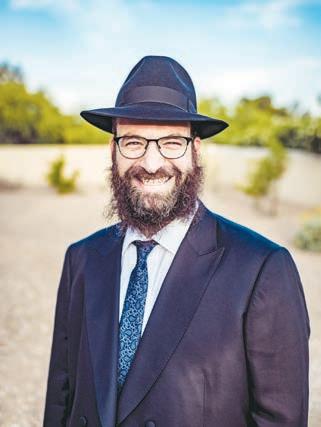
announced that she and her neighbors in Northampton, Massachusetts, would personally care for 25 of the children.
Even though there was no danger that the children would take jobs away from American citizens, anti-immigration activists lobbied hard against the WagnerRogers bill. President Roosevelt’s cousin, Laura Delano Houghteling, who was the wife of the U.S. Commissioner of Immigration, articulated the sentiment of many opponents when she remarked at a dinner party that “20,000 charming children would all too soon grow up into 20,000 ugly adults.” FDR himself refused to support the bill. By the spring of 1939, Wagner-Rogers was dead.
But Wagner-Rogers was not the only way to help Jewish refugees. Just a few months earlier, in the wake of Germany’s Kristallnacht pogrom, the governor and legislative assembly of the U.S. Virgin Islands offered to open their territory to Jews fleeing Hitler. Treasury Secretary Henry Morgenthau Jr. endorsed the proposal.
That one tiny gesture by President Roosevelt — accepting the Virgin Islands
leaders’ offer — could have saved a significant number of Jews. But FDR rejected the plan. He and his aides feared that refugees would be able to use the islands as a jumping-off point to enter the United States itself.
At a press conference on June 5, 1940, the president warned of the “horrible” danger that Jewish refugees coming to America might actually serve the Nazis. They might begin “spying under compulsion” for Hitler, he said, out of fear that if they refused, their elderly relatives back in Europe “might be taken out and shot.”
That’s right: Anne Frank, Nazi spy.
In fact, not a single instance was ever discovered of a Jewish refugee entering the United States and spying for the Nazis. But President Roosevelt did not shy away from using such fear-mongering in order to justify slamming shut America’s doors.
The following year, the administration officially decreed that no refugee with close relatives in Europe could come to the United States.
Anne and Margot Frank, and countless other German Jewish refugee children,
were kept out because they were considered undesirable. They didn’t have what FDR once called “blood of the right sort.” One year after the defeat of WagnerRogers, Roosevelt opened America’s doors to British children to keep them safe from the German blitz. Those were the kind of foreigners he preferred.
“ Life ” magazine’s tribute to Anne Frank is touching. The photos fill our hearts with pity. But by failing to acknowledge what the Roosevelt administration did to keep the Jews out, “Life’s” version of history misses a point that future generations need to remember: Pity is not enough to help people who are trying to escape genocide. JN
Rafael Medo is founding director of The David S. Wyman Institute for Holocaust Studies, and the author of “The Jews Should Keep Quiet: President Franklin D. Roosevelt, Rabbi Stephen S. Wise, and the Holocaust,” forthcoming from The Jewish Publication Society in 2019. This article was originally published by the History News Network. It is reprinted by permission of the author.
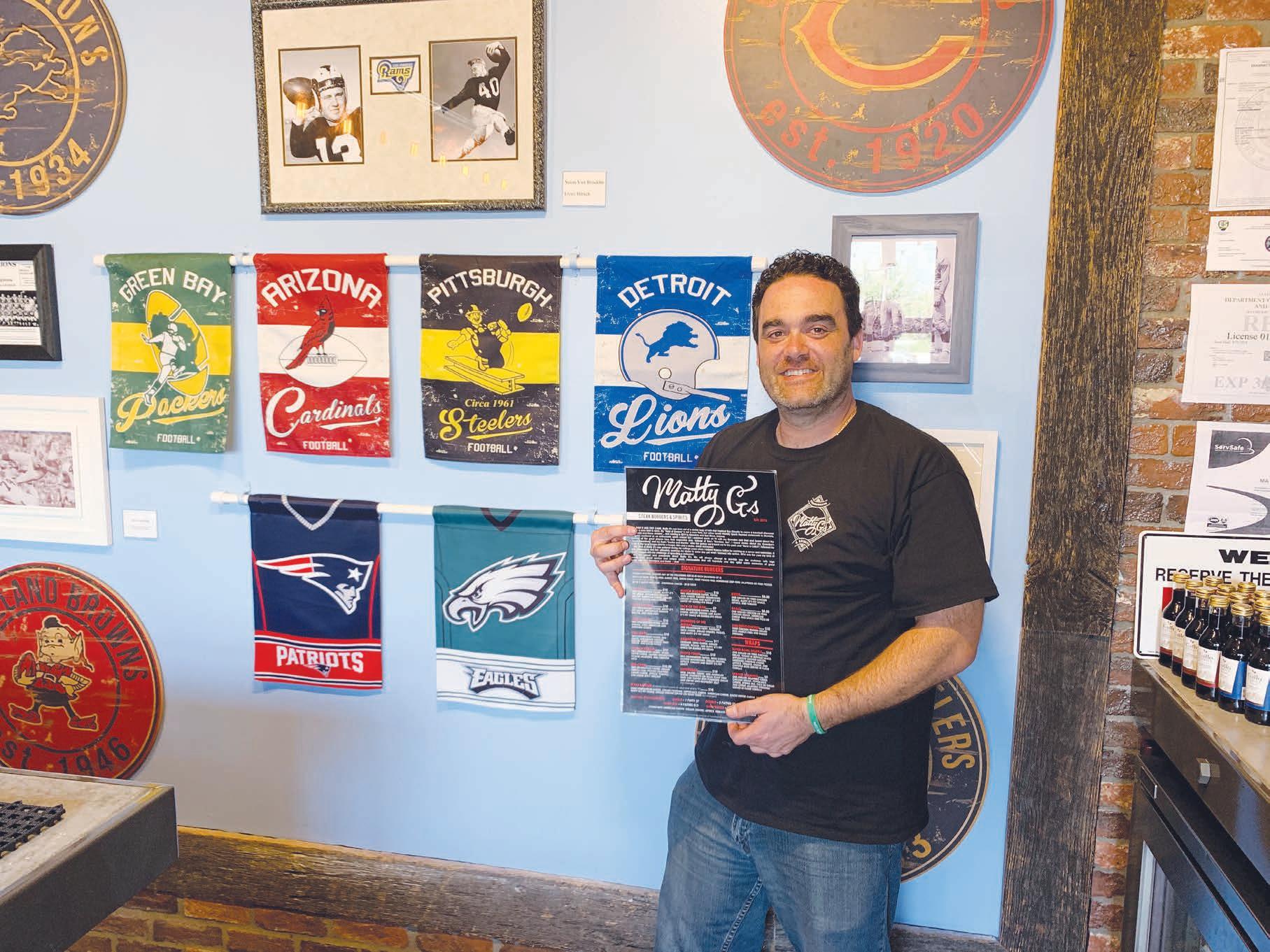
Matty G’s Steakburgers and Spirits in Mesa is a haven for all sports fans. The menu items are named after classic sports terms, every TV has a game playing and the walls and tables are dressed with paraphernalia from every team imaginable.
But don’t let the restaurant’s aesthetic and the full bar fool you — Matty G’s is more than just another sports bar. For Matt Gorman, the owner and founder of Matty G’s, the focus is on creating great food and a space for families to come together.
iPhones,” Gorman explained. “The goal is to have kind of the old-school dinner together, kind of like a ’50s or ’60s oldschool family dinner. Here, we don’t have music blaring, we have a game playing so you can hear the commentators. We want everyone have a fun experience.”
While Gorman has made Phoenix his home, the walls of Matty G’s show love for Gorman’s favorite Detroit teams. In fact, he feels that Matty G’s is similar to the delis he visited with his family in his native Detroit. For example, the restaurant’s atmosphere is child-friendly. Dogs are also welcome on the outside patio.
Gorman, who got his MBA at Arizona State University, opened the first Matty
expected to open in August.
The Glendale restaurant will occupy a 2,500-square-foot space and seat 110 patrons. It will also have a full bar, with 12 beers on tap and a specialty cocktail menu. Like its Mesa counterpart, there will be plenty of TVs and the aesthetic will allow customers to pick seating spaces that cater to their individual allegiances, such as a table with only Diamondbacks logos.
ership and management, Matty G’s has been one of Gorman’s favorite projects. But it hasn’t always been an easy path.
“I ran some restaurants and lost them all because of the recession,” Gorman said. “My best advice for anyone who’s thinking about running a restaurant is that your rent has to be affordable. On your worst, darkest day, can you still afford the rent? Because that’s what hap-










Corporations have one more week to submit applications to receive a dollar-for-dollar tax credit for helping provide scholarships for students in Jewish day schools.
C-corporations, S-corporations, insurance companies and LLCs filing as S-corporations are eligible to take the corporate Arizona private school tuition tax credit when they support student tuition organizations for students attending private schools. The Jewish Tuition Organization is an STO that provides scholarships to six local Jewish day schools.
The application deadline is Thursday, June 27.

The corporate tax credits are “very important because we can get larger amounts, up to the $106 million cap, and it all goes to needsbased awards for low-income students,” said Linda Zell, JTO executive director. “Our goal is to fill every seat in every school and allow every child whose family wants them to attend a Jewish day school to be able to attend.”
The JTO, along with other STOs in the state, will submit the applications to the Arizona Department of Revenue on July 1. Once the $106 million cap on corporate tax credits is reached, no more will be accepted. Last year, the state’s cap was reached in the first two minutes of the application process, said Zell. The JTO applied for just under $2.3 million from 63 corporations and received approval on $1.7 million for 51 corporations before the cap was reached.

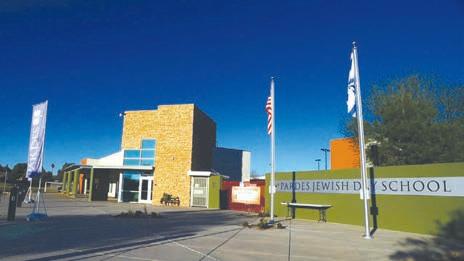
“They have improved the application process this year so that we can prioritize the applications that receive approval,” Zell said. She notes that the JTO will “make it as simple as possible” for corporations to apply; the corporation only needs to fill out one form “and we do everything else.”
There isn’t a maximum amount for the credit (besides the $106 million statewide cap on the program), but S corps have a minimum donation of $5,000. It is rec ommended for all to check with their tax preparer regarding their tax benefits.

For the first time, the JTO will allow corporations to specify whether they want their funds to go to the JTO’s general fund, to a specific school fund or multiple school
funds. By law, no corporate funds can be recommended for a specific student and all funds are used for needs-based awards to low-income families.
Individual donors can also now recommend where they want their funds to go. They have a choice of recommending their funds go to the JTO’s general fund, to a specific school fund or to an individual student, as long as that student is not the taxpayer’s child or dependent. The students do not have to be eligible for a need-based award in order to receive a recommended scholarship.

Taxpayers can donate at any time during the year, and monthly payments can be arranged. Taxpayers filing individually can donate up to $1,135 and married couples can donate up to $2,269.
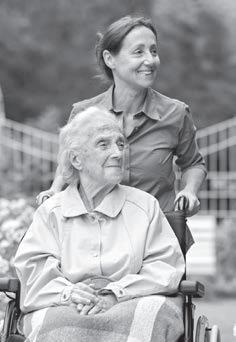
In total, the JTO received $4.6 million for the 2018 tax year and those funds will be allocated in scholarships for the 2019-2020 school year, Zell said. For the 2018-2019 school year, the JTO provided nearly $3.89 million in scholarships for about 600 students in grades K-12.
Zell explained that Arizona law requires school tuition organizations to grant at least 90% of the contributions they receive, but the JTO typically grants about 94%, “because our goal is to give away as much as possible and we run a very tight ship.”

The JTO provides scholarships to students attending Pardes Jewish Day School, Torah Day School of Phoenix, Phoenix Hebrew Academy, Shearim Torah High School, Desert Jewish Academy and Yeshiva High School of Arizona. JN




To apply or donate, visit jtophoenix.org or call the

Q: What is all the hype about Opportunity Zone Funds? Is the tax savings really that compelling?
A: Many have stated this program represents the greatest tax reduction opportunity of our generation. When modeled against a standard investment using the same underlying rate of return and time assumption, an opportunity zone investment produces more than 2x the net return on investment.
Q: Where did this tax reduction program come from?
Q: Who can I work with and how is my money invested?
A: While the recent buzz surrounding Opportunity Zones have spurred plans for many new Funds, there are few qualified funds open, available for investment and ready for you to take advantage of.
One option is the Caliber Tax Advantaged Opportunity Zone Fund, LP which opened in 2018 and has begun investing directly into a diversified portfolio of real estate assets in qualified zones throughout the Southwest growth markets. You can learn more about the fund at opportunity.caliberco.com

Headquartered in Scottsdale, Arizona, Caliber - The Wealth Development Company is a full-service real estate investment company specializing in commercial, residential, multi-family, self-storage and hospitality properties.

Since its inception in 2010, Caliber has more than $225 million in invested equity across the southwest with more than $375 million of assets under management. Caliber’s investment cycle is managed 100 percent in-house through its five business units: Investment, Construction & Development, Property Management, Brokerage and Hospitality. Operating under the principles of integrity, responsibility, discipline and transparency, Caliber provides its more than 400 accredited investors with well-managed, diverse, asset-based investment strategies.
A: Opportunity Zones were enacted as part of the Tax Cuts and Jobs Act passed on December 22, 2017. The driving force behind the tax code changes was to incentivize economic growth in designated communities where new real estate and businesses can thrive.
Q: Is any taxable capital gain eligible for the program?
A: Short and long-term capital gains derived from any source –sale of a business, a real estate asset, stocks you own, etc. – are eligible for the program benefits. Investors who “wait and see” on this program will miss out, as the gains must be invested within 180 days of being realized to qualify.
Keep in mind real estate investment requires the right team, an operating history, and a track record of success.
Q: Are there options for my other forms of capital?
A: Yes! Caliber has become a leader in real estate private equity investment in Arizona and can help you find the right options to grow your wealth or generate stable income from your capital. Give us a call at 480-295-7600 or connect with us on our website to setup a conversation with the Caliber team.
602-430-3158
AmyRosenthalRealtor@gmail.com



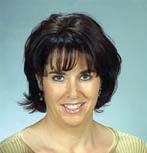


www.AmyRosenthal.com

 LEISAH WOLDOFF | CONTRIBUTING WRITER
LEISAH WOLDOFF | CONTRIBUTING WRITER
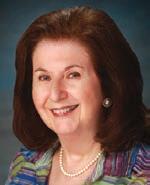
One day while getting her hair blown out for an event, Deborah Muller felt a lightning bolt of inspiration. The Scottsdale PR professional was looking to add more creativity into her life and decided to embark on a fashion business idea.

As a self-described “young, used-to-behip Jewish person who has pride,” Muller said, “sometimes I don’t want to wear a Star or David or an Israeli flag. I just want to be a little more tongue-in-cheek.”
Bus

7077


Tobyre4u@aol.com






represents chai, or “life,” is a significant number in Judaism. “I wanted to make the connection for Jewish people who get all the insidery stuff.”
So after examining her business-casual wardrobe and realizing that it mainly consisted of T-shirts, Muller founded Schmattees, “an apparel line whose designs combine a little bit of cheekiness and a whole lot of chutzpah,” as she put it on the website.
Muller’s background in advertising and PR included a stint in the fashion world, doing PR for designer Michael Kors in New York. She currently handles public relations for the Greater Phoenix Jewish Film Festival; Beth Ami Temple; the Bureau of Jewish Education; Camp Kucina, a cooking camp for children; and Seasons Gourmet Catering.
Using her advertising-copywriting skills and knack for slogans, she came up with all the T-shirt sayings. One of her favorites is “You’ve Come a Long Way, Bubbe,” which is “a play on female empowerment and how far we’ve come, but we still have a long way to go.”
As for hesitation people might have about publicly identifying as Jewish, Muller said, “I don’t want to feel that way. I want to be a proud Jew and make it a fun, dynamic, relatable thing.”
When she wears one of her Schmattes T-shirts, she often gets approached by other Jews. “You have that shared Jewish identity, a shared connection,” she said.
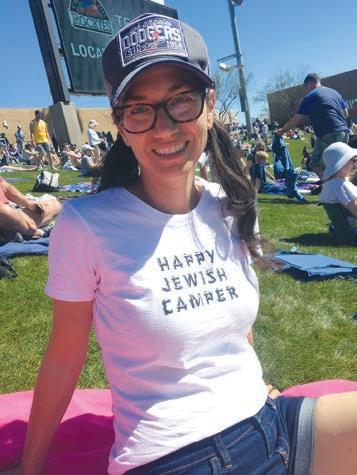
To play on this Jewish identity, she’s included some inside jokes in her business, including in the name itself.
“Schmatta is a Yiddish word literally for ‘rags,’ but it became known for the fashion trade, for items of clothing, and I just changed it to Schmattees.”
Another inside joke is the price of the shirts, which is $18. The number 18, which
But she also tried to create sayings and shirts that would appeal to those outside the Jewish community. “It’s not exclusive, it’s very inclusive.”
In fact, she recently heard from a former neighbor, the wife of a pastor, who purchased a Schmattees T-shirt with the “Salty Like the Dead Sea” slogan to wear on an upcoming trip to Israel.
Muller, who grew up in Beverly Hills, California, and has lived in Arizona since 2001, also wanted to appeal to the full spectrum of Jewish observance, from “cultural” Jews to Orthodox Jews. T-shirt sayings reference Jewish culture and rituals, as well as Yiddish expressions:
• If you can’t say anything nice… say it in Yiddish

• Chai Roller
• Happy Jewish Camper
• Shiksa Magnet
• Goy Toy

• I Survived a Jewish Mother
• Hebrew School Dropout
• Doing My Kugel Exercises
• Frum & Fabulous
• Tefillin’ Groovy
• Schmutz Happens
• Party Like a Lox Star
For now, the products are available exclusively on Amazon.com, which includes free Prime shipping. (To view different designs, visit shopschmattees.com.)
What surprised her most about starting her own business? “I thought it would be easier,” she said. “I totally am impressed with small business owners because it definitely takes a lot more time and energy to think of it, then get it produced, sold, promoted. … But it’s been so fun and my creative side has definitely started feeling more fulfilled.” JN
The story began rather typically. One sister went to law school, the other pursued a career in education. Over the years, older sister Hope fine-tuned her career as a teacher and administrator in special education in the New York City public schools, while younger sister Lori pursued a successful path as a trial lawyer.
Fast-forward to 1995. Hope Kirsch (who, full disclosure, is my wife) was now a practicing attorney after nearly 20 years as an educator. Lori KirschGoodwin had two sons, one of whom had been diagnosed with autism. They lived in Phoenix and worked at a large law firm.
Even though they were successful there, the sisters left the firm and decided to focus on something that had become part of the fabric of their lives: students with disabilities. Thus KirschGoodwin and Kirsch PLLC was born.
“Based on my background in education and then law, coupled with my nephew’s diagnosis, we knew we had to dedicate our lives to helping this community,” Hope said. “One cannot begin to describe the pain and frustration of parents of children with special needs who are not getting the proper services and support from the schools. These families are reaching out for help and solutions.”
“Families need guidance in navigating the special education web,” Lori added. “There are laws written to protect students and their families, but they are daunting and parents feel a sense of helplessness. Their only concern is to insure their children are provided for and given every opportunity to be successful in school and ultimately happy and productive members of society. That’s the space we operate in, holding schools and the educational system accountable.”
Work in this area is what steered Hope to Gesher Disability Resources, where she is a volunteer manager of a group home. Amy Hummell, Gesher’s executive director, said, “Our agency’s volunteers help at our social group outings, participate in our Simchat Shabbat services, and lend their professional expertise in real estate, law, medical and
financial. I have also been fortunate to partner with so many wonderful people like Hope Kirsch and Lori KirschGoodwin. I believe we are only stronger when we work together.”
The sisters’ practice includes advocacy, IEPs and 504s, due process litigation, Office of Civil Rights, discipline, restraint and seclusion and bullying — for both students with disabilities and general education students.
Every year they present for the Federal Bar, the State Bar of Arizona and at conferences in Arizona and around the country for advocates and parents.
“Every state has different nuances with how they deal with special education issues, but federal law is what dictates procedure and actionable items,” Hope said. “The rules are not ‘suggestions’ but rather mandates for public schools, including charter schools, to follow to insure that students with disabilities are receiving no less than that to which they are entitled.”
Yet challenges still remain regarding inclusion and a sense of belonging -- not only in the educational system but in the Jewish community as well, though both Hope and Lori point out that the Phoenix Jewish community stands above many others in recognizing the challenges of special education and the needs of students.

Working in this educational space requires constant and consistent championing of special education strides by attorneys who put compassion and understanding at the forefront when dealing with schools in the state. Those are the expectations the Kirsch sisters are trying to fulfill.
“Providing a strong learning environment only works when a legal system reinforces what is the right thing to do,” said Hope. “You can use the law to accomplish what is needed, but you cannot mandate sensitivity to truly understand how this community lives and what they need educationally to succeed.” JN
Summer
July
July
From home health aides to travel agents, financial planners to realtors, this is the perfect venue to showcase your products for older residents in the Valley.

July

 BARBARA KAPLAN | SPECIAL TO THE JEWISH NEWS
BARBARA KAPLAN | SPECIAL TO THE JEWISH NEWS
Ijust finished reading an article that contained the age-old question: Is the glass half-empty or half-full? The article wondered if pessimism and optimism were the only deciding factors in the way people perceive the glass. Or is there more to it than that?
Take the example of two people deciding how to decorate the same room. One person sees all the things that have to be done to redo the room, all the work and expense involved in creating a setting that they would like, which can become overwhelming, scary and seem cost-prohibitive. The other person visualizes living in the room with all the newly chosen things he or she loves; the styles, colors, textures and accessories they have been dreaming of. To the first person, it is a heavy burden to begin this project. To the other, it’s an exciting adventure.
In this scenario, it doesn’t matter if the person is a pessimist or an optimist. The important factor is where the person focuses his or her attention. It requires openness to the possibilities that can be created by not fearing the outcome and not worrying if the end result will work. Both people are able to get the look and feel they’re after within the parameters of what they need and want. The only difference is that one is fearlessly looking toward the goal of what can be done, while the other is concerned about the outcome not fulfilling his or her wishes.
It all depends on the direction one is looking. By focusing your sights, goals and actions on a successful completion of the project, you will stay focused on your goals. It is important to understand what you want to achieve and to be realistic about the budget. There are many choices, and you can change those choices to accommodate prices.
It is soul-satisfying to stay with the choices you like, but don’t be afraid to explore different ways to achieve the look and feel that you want. Design is an art, not a science, and you can be your own artist in making selections. Do not let doubt in. Remember, if it feels right, it is right!
Then there are times when things go wrong. I love the challenge of discovering that something I had planned on isn’t available any longer, or it won’t fit or just doesn’t look like I had intended. This is when rethinking and creativity can come into play. Jump at the chance of making a unique statement with your ideas to solve the problem. This could mean reselecting, redesigning or eliminating a part of the project. Be open to another way or thought. Don’t get stuck in having to follow through with the original idea. Flexibility is key in any design project. Chances are that whatever the solution, it will work out better because you made a signature difference. Most of you may know that my philosophy — “Rooms have no feelings, you do” — is my life’s work, and that I believe you can live in an environment that gives you peace, tranquility, satisfaction and beauty. With this in mind, look within for your decorating answers. Always know that you deserve to live the way you want. You are capable of making it happen. JN
THURSDAY, JUNE 27
Documentary and discussion: 11 a.m., East Valley JCC, 908 N. Alma School Road, Chandler. The film “City of Joel” examines a turf war between a Chasidic sect and their secular neighbors in a town north of New York City. The discussion that follows the film will be led by Rabbi Michael Beyo of East Valley JCC. Cost: $14, includes kosher lunch. Registration is required. Go to: evjcc.org/open-beit-midrash
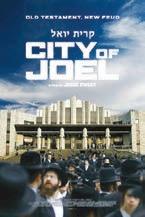
WEDNESDAY, JUNE 26
PJ by the Pool: 9:30-10:30 a.m., Ina Levine Jewish Community Campus, 12701 N. Scottsdale Road, Scottsdale. Parents can bring their toddlers to The J for stories and songs with PJ Library. Children can also enjoy the splash pad and an icy treat. J members: Free. Guests: $5. Check in at the Membership Desk or pay at the door. PJ Library is funded by the Jewish Federation of Greater Phoenix and programmed in partnership with the Valley of the Sun JCC. For more information, contact pjlibrary@vosjcc.org
SUNDAY, JULY 7
Gesher Pool Party: 9:30-11 a.m., Valley of the Sun JCC, 12701 N. Scottsdale Road, Scottsdale. Join Gesher Disability Resources for a day of swimming and fun in the sun. Gesher will provide the snacks and drinks, come in swimwear and remember the sunscreen. RSVP: 480-629-5343 or info@gesherdr.org
MONDAYS
Mahjong Mondays: 10 a.m.-12:30 p.m., East Valley JCC, 908 N. Alma School Road, Chandler. Every Monday, except on Jewish or legal holidays. No RSVP is necessary to attend. This free program is intended for players with prior experience. Bring a current mahjong card and a set, if possible. 480-897-0588
WEDNESDAYS
‘The Valley News’: 10-11:30 a.m., Valley of the Sun JCC, 12701 N. Scottsdale Road, Scottsdale. The class focuses on current events and is led by Dr. Michael Epner. No registration required.
WEDNESDAY, JUNE 26
“Tikkun Olam”: Exploring the Concept of Repairing the World Throughout Jewish
Intellectual History!: 1-2 p.m., Temple Chai, 4645 East Marilyn Road, Phoenix. Tikkun Olam (repairing the world) is a concept often invoked but rarely understood. It turns out that the phrase was used throughout Jewish history over the last two millennia in very different ways. In this class, Rabbi Dr. Shmuly Yanklowitz will lead attendees through a text study of various sources to understand how different Jewish thinkers have understood the concept of tikkun olam and what that might mean for today.
Registration required: valleybeitmidrash.org/ event/tikkun-olam-exploring-the-conceptof-repairing-the-world-throughout-jewishintellectual-history/
PHOTO VIA VISITFILMS.COMTHURSDAY, JUNE 27
Class on the Book of Samuel: 9 a.m., East Valley JCC, 908 N. Alma School Road, Chandler. Led by Rabbi Michael Beyo. Free. Registration required: evjcc.org/open-beit-midrash
Talmud class: 10 a.m., East Valley JCC, 908 N. Alma School Road, Chandler. Led by Rabbi Michael Beyo. Cost: $14. Registration required: evjcc.org/open-beit-midrash
JULY 8-11
Hebrew Conversation Mini Summer Ulpan, Intermediate Level: 5-7 p.m., Ina Levine Jewish Community Campus, 12701 N. Scottsdale Road, Scottsdale. This brief class, led by Hebrew instructor Sophie Plapp, will incorporate new and learned vocabulary and grammar to advance one's conversational Hebrew. Cost: $108. Registration required: bjephoenix.org/ events/2019/7/8/hebrew-mini-summer-ulpan
THURSDAY, JULY 18
Federation Pride Happy Hour: 5:30-7:30 p.m., Kobalt, 3110 N. Central Ave, Phoenix. Federation Pride, an organization recently launched by The Jewish Federation of Greater Phoenix, will host a happy hour at the karaoke bar, Kobalt. Learn more at jewishphoenix.org/event/ federation-pride-happy-hour/
SUNDAY, JUNE 23
MAKOR Swabs for Life: 9 a.m.-noon, MAKOR Synagogue, 13402 N. Scottsdale Road, Scottsdale. Join MAKOR and nonprofit blood donor organization Gift of Life for eligibility to be screened and join the worldwide registry for patients in need. Those interested in eligibility must be between 18-45. No registration required. Learn more at giftoflife.org/events/ drive/16283?Date=Jun+23%2c+2019
Family
MAY 28- AUG. 2
Shemesh Camp at The J: Valley of the Sun JCC, 12701 N. Scottsdale Road, Scottsdale. Sign up for all the different types of camps, which include superhero week, Israel week and much more. Information: vosjcc.org/ shemeshsummer2019
Camp Rimon Gadol: Camp days are 9 a.m.-3:30 p.m., Monday-Friday; extended care available
7-9 a.m. and 3:30-6 p.m., East Valley JCC, 908 N. Alma School Road, Chandler. Camp Rimon Gadol is designated for grades kindergarten through ninth. Register: camp@evjcc.org
Camp Rimon Katan: Camp days are 9 a.m.-3:30 p.m., Monday-Friday; extended care available
7-9 a.m. and 3:30-6 p.m., East Valley JCC, 908 N. Alma School Road, Chandler. Weekly sign-ups available. Campers’ days start with a
camp-wide welcome, camp songs and continues with big smiles from playing games, making art, music, sensory play, scientific discovery, cooking and exciting weekly themes. Children engage in developmentally appropriate activities with the camp's NAEYC Accredited program, and are cared for by expert staff. Day Camp Rimon Katan is for those aged: 2-year-old through pre-kindergarten. Register at camp@evjcc.org
SUNDAY, JUNE 23
Arizona Friends of Israel Scouts Welcomes
Caravan Manor 2019: 11 a.m., Temple Beth Shalom, 12202 N. 101 Ave, Sun City. The Israel Scouts are 16 and 17 year old boy and girl Scouts from Israel. Scouting in Israel encompasses approximately 80,000 youth. The Caravan is a group of entertaining emissaries that appeal to audiences of all ages. Free show. For more information, please contact Steve Rosenbaum at 480-216-4280.
Arizona Friends of Israel Scouts Welcomes
Caravan Manor 2019: 4 p.m., Temple Chai, 4645 E. Marilyn Road, Phoenix. The Israel Scouts are 16 and 17 year old boy and girl Scouts from Israel. Scouting in Israel encompasses approximately 80,000 youth. The Caravan is a group of entertaining emissaries that appeal to audiences of all ages. Free show. For more information please, contact Steve Rosenbaum at 480-216-4280.
TUESDAY, JUNE 24
Knitting Circle at The J: 1:30-4:00 p.m. Valley of the Sun JCC, 12701 N. Scottsdale Road, Scottsdale. Share the pleasure of knitting and crocheting. Help others with projects and patterns. No reservations required. For more information, contact Harriet at 480.481.7033 or harrietc@vosjcc.org
SUNDAY, JULY 7
Valley Jewish Singles 50+: Noon, Chompies PV Mall, 4550-324 E. Cactus Road, Phoenix. Reservations required. valleyjewishsingles@cox. net
WEDNESDAY, JULY 10
Knitting for a Purpose: 1-3 p.m., Temple Solel, 6805 E McDonald Dr, Paradise Valley. Love to knit or crochet? Join Temple Solel on the second Wednesday of the month to knit. Refreshments and yarn will be provided. Please bring any needles and patterns. All are welcome, members and nonmembers alike. For more information, contact knitting@templesolel.org
FIRST SATURDAY OF EACH MONTH
Kavana Café: 8:45 a.m., Congregation Or Tzion, 16415 N. 90th St., Scottsdale. This is an informal opportunity to learn with Rabbi Caplan prior to Saturday-morning services. A light breakfast will be served. For more information visit congregationortzion.org or call 480-342-8858.
EVERY SATURDAY
Torah Express: Noon, Congregation Or Tzion, 16415 N. 90th St., Scottsdale. On Shabbat mornings, during the congregation’s Kiddush lunch, join Rabbi Caplan and other Jewish professionals and teachers from the community for an in-depth study of the Torah portion of the week. No RSVP required. For more information visit congregationortzion.org or call 480-342-8858.
FRIDAY, JUNE 21
PJ Library’s Tot Shabbat: 5-6:15 p.m., Temple Beth Shalom of the West Valley, 12202 N. 101st Ave., Sun City. Features story time, singalong, noodle crafts and spaghetti dinner. PJ Library, Phoenix is funded by Federation and programmed in partnership with the Valley of the Sun JCC. RSVP to 623.977.3240 or tbsazpgrograms@gmail.com
Post Shabbat film screening: After a Shabbat service at a north Scottsdale location, Desert Foothills Jewish Community Association will screen the film “Jews and Baseball.” It traces Jewish involvement in the history of the sport, from the early days to today’s All-Star Games. The film demonstrates how Jews shaped baseball and baseball shaped the Jewish communities in America. Dues are $60 per year. For information, contact Andrea: 480-664-8847.
FRIDAY, JULY 19
Post Shabbat film screening: After a Shabbat service at a north Scottsdale location, Desert Foothills Jewish Community Association will show the film “Watermarks: The Jewish Swimming Champions Who Defied Hitler.” The film showcases the legendary Jewish women swimmers of the Vienna Sports Club (Hakoah). Its women’s swim team virtually dominated national competitions in the 1930’s. The film is an uplifting story of survival and friendship. Dues are $60 per year. For information, contact Andrea: 480-664-8847.
FRIDAY, JULY 26
Musical Shabbat: Congregation Or Tzion, 16415 N. 90th St., Scottsdale. It's time for Or Tzion’s Shabbat in the Round! This unique service features musicians on a variety of instruments, singing harmonies and adding depth and kavanah to Friday night worship.
FRIDAY, AUGUST 16
Post Shabbat film screening: After a Shabbat service at a north Scottsdale location, Desert Foothills Jewish Community Association will screen the film “Welcome to Kutsher’s: The Last Catskill Resort.” Kutsher’s Country Club was the last surviving Jewish resort in the Catskills. One of the legendary Borscht Belt hotels during its heyday, Kutsher’s was family-owned and operated for over 100 years until its sale and demolition in 2014. Dues are $60 per year. For information, contact Andrea: 480-664-8847.
THROUGH SEPT. 11
‘We Remember: The Liberators’: Cutler Plotkin Jewish Heritage Center, 122 E. Culver St., Phoenix. This project of the Arizona Jewish Historical Society showcases the stories of 10 World War II Liberators via artifacts, primary sources, documentation, photographs and biographical information. It will also feature the work of Arizona artist Robert Sutz, whose collection contains 500-plus life masks, portraits and paintings depicting the brutal atrocities committed by Nazi Germany during World War II. Free exhibit. For more information visit azjhs.org or call (602) 241-7870. JN
The 2019 graduates of the fourth Women’s Leadership Institute class are honored at the May 7 graduation ceremony.
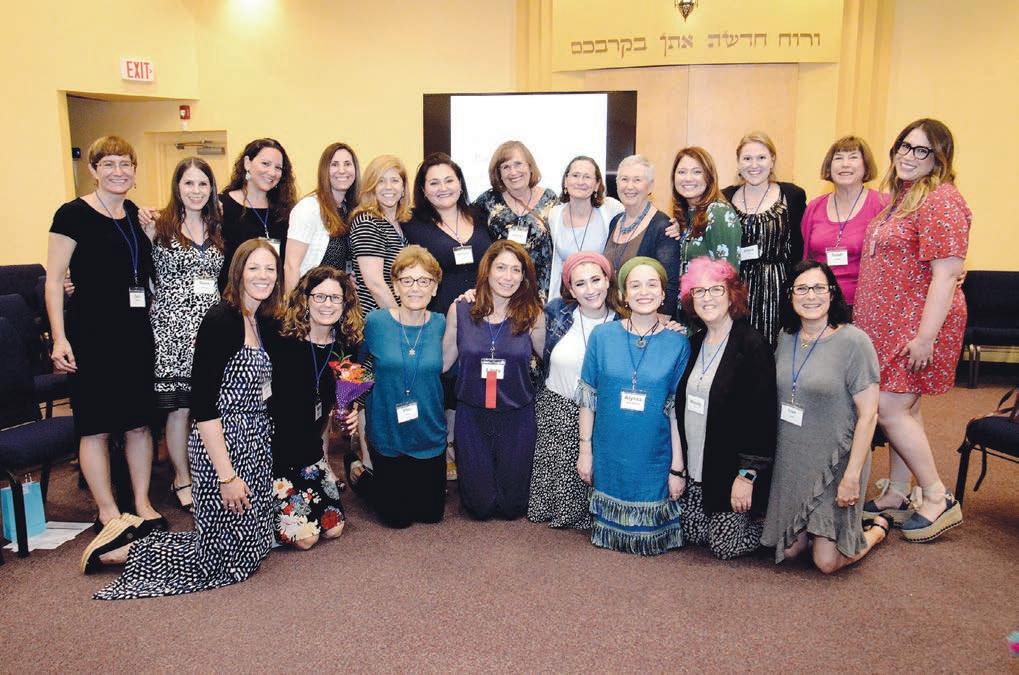
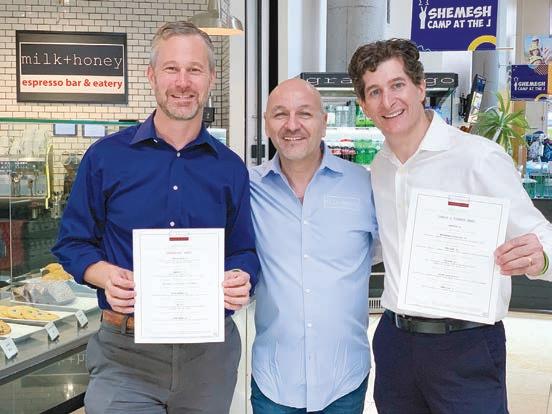
Doctors Craig Primack, left, and Robert Ziltzer, right, of Scottsdale Weight Loss Center show off the new SWLC menu, developed with milk + honey espresso bar & eatery owner Dany Marciano, center, as part of the Fit Mind, Fit Body partnership with the Valley of the Sun JCC. In addition to the healthy menu options, SWLC behavior therapists and registered dietitians lead monthly classes on a variety of topics such as mindful eating, the benefits of eating lean and how to make good choices when eating out.
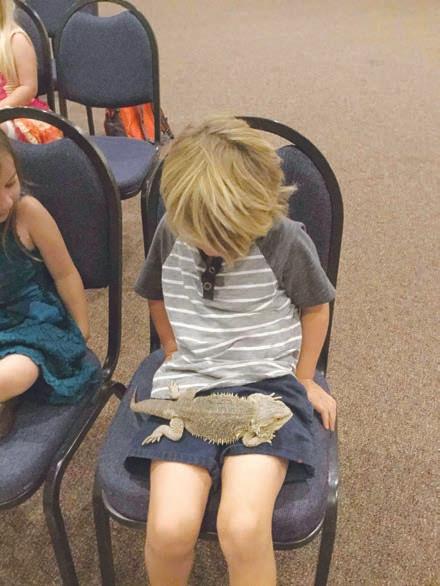
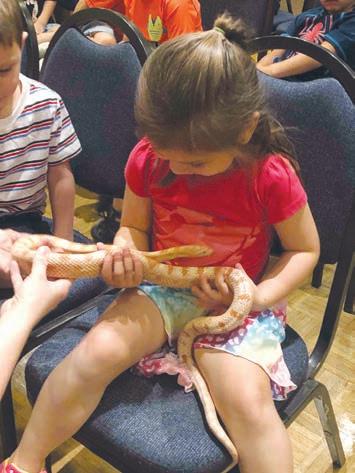
Chabad at Northern Arizona University’s 2019 graduates celebrate their success at an outdoor graduation party.
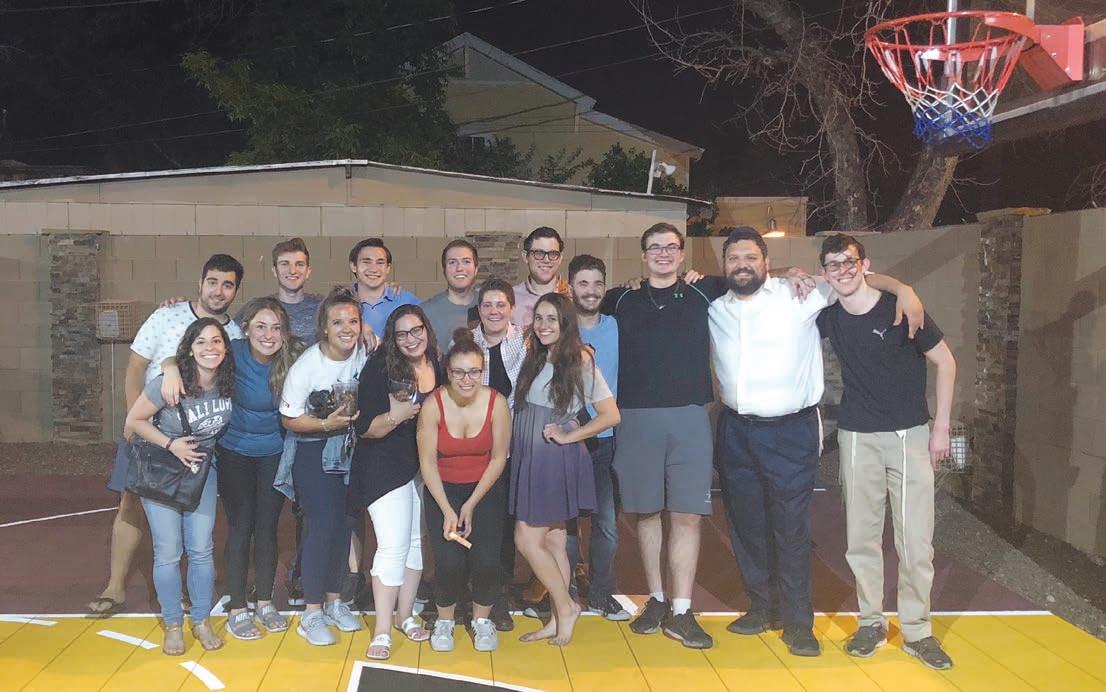
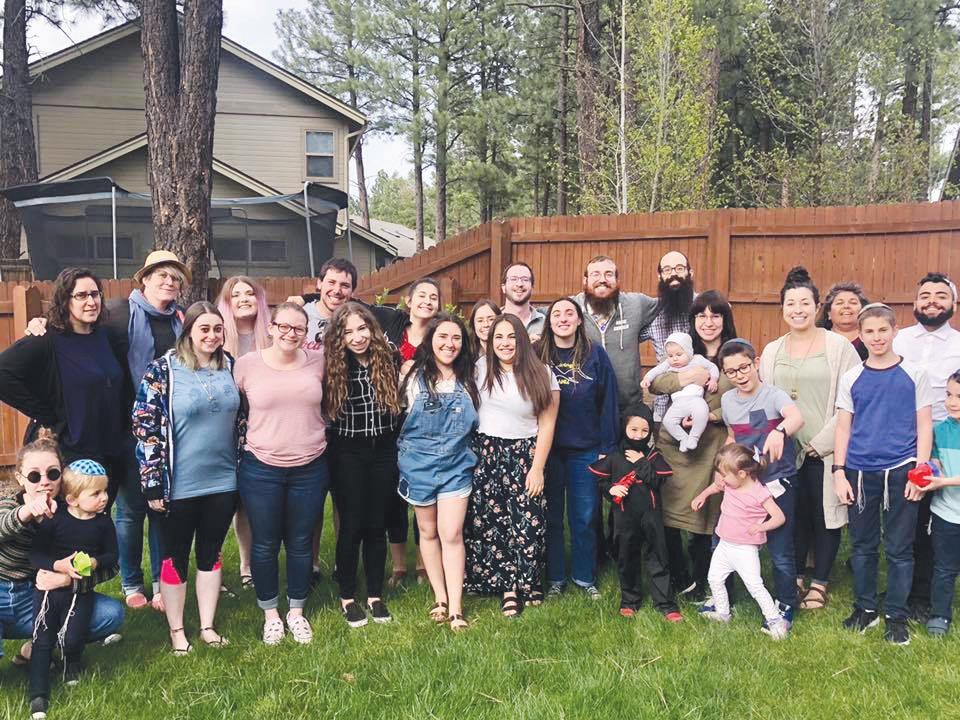
Esther Opolion, lovingly referred to by her granddaughters Annie and Lisa Maiden as “Bubbie,” age 101, entered into rest on ues., ay , . A graveside service officiated by Rabbi Sadie Becker was held on May 30 at Beth El Cemetery in Phoenix. From her birth in Lodz, Poland, on May 15, 1918, to her death, she was — as her Hebrew name suggests — a “star,” a beacon of light for the many lives she touched. At 18, Esther was forced into the Warsaw Ghetto, followed by Bergen-Belsen and Auschwitz, where she witnessed the horrific murders of her mother, father and all but one of her nine brothers and sisters, brutally shot and gassed behind barbed wire. Esther lived to tell her story of the Holocaust, including how she stole potatoes from the German kitchen where she worked and brought them back to the barracks in the seam of her underwear. Esther and her brother, Leo Perl, were the only remaining survivors of their large family.
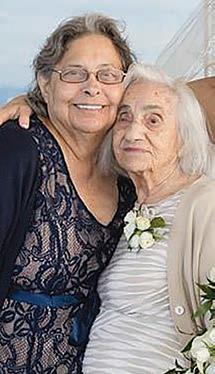
Esther married Emanuel Opolion in Germany in 1948, and had their son, Jack, in 1950. After immigrating by boat to Ellis Island, Esther moved to Chicago, where her two daughters, Sarah and Sheila, were born, and where she worked as a seamstress and clothing manufacturer and then at a bakery. She worked at Karsh’s Bakery in Phoenix for seven years and shared her talent for baking and Jewish culture with her family and friends by making almond crescent cookies, kugel, blintzes and many other memorable dishes. At 80 years old, Esther stayed strong by attending the YMCA, where she met many close friends.

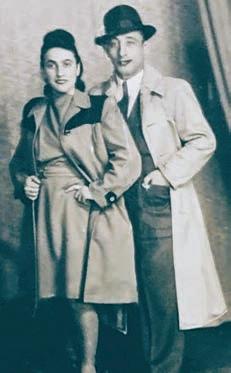
Even in the last year of her life, after breaking a hip, Esther wanted to be independent: “As long as I can do for myself, I should.”Esther’s gratitude for life exuded from her. She danced all the way down the aisle at the wedding of her granddaughter, Annie, singing, “See, Hitler, I’m dancing!”
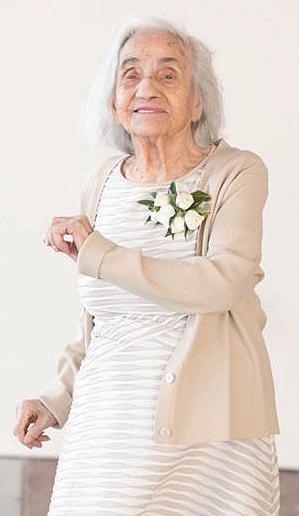
Sarah Rose Opolion, whose Hebrew name means “princess,” entered into rest on Mon., May 27, 2019, at age 66 in Phoenix, leaving behind her sister, Sheila Maiden, and brother-in-law, Barry Maiden; brother Jack Opolion; and nieces Lisa and Annie Maiden. Esther Opolion, Sarah’s mother, was laid to rest on May 28, a day after Sarah’s passing, after hearing the heartbreaking news of Sarah’s death.


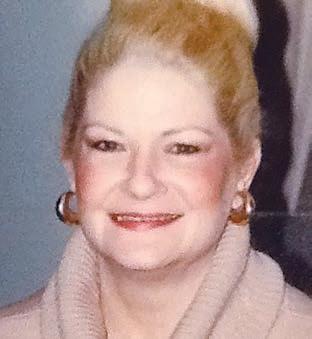

Born in Chicago, Illinois, on June 15, 1952, Sarah grew up in a small apartment in Roger’s Park. Sarah obtained an associate degree in liberal arts and then worked in the medical field in Chicago and in Phoenix as an office manager for five years. She then worked as a Bank of America teller, and then the controller at T&S Furniture, a chain owned by her brother-in-law, Barry Maiden. Sarah loved to cook and bake for others for every special occasion — brownies, cheesecake, cream puffs, crescent almond cookies, rugelach, kugel and kreplach.



When her sister had to work, Sarah raised her nieces as if they were her own children, cooking for them and taking them to school. A selfless woman who never said no to any request, Sarah cared for her Uncle Leo with Alzheimer’s and her father, Emanuel “Zida,” by taping his wrestling shows, driving him to the JCC and cooking chicken soup for him. Sarah took care of her 101-year-old mother, Esther, until the last day of her own life, through years of chemo and radiation, hormone therapy, IVs, experimental drugs and giving family members rides even though she barely had the strength in her limbs to press the gas pedal. Like The Giving Tree, she wanted to bring joy to everyone in her life — even at the expense of her own health and happiness. A funeral service officiated by Rabbi Sadie Becker was held on Thurs., May 30, at Beth El Cemetery in Phoenix to honor Sarah, buried not more than 20 feet from the grave of her mother, Esther.
It’s been a year since we’ve held your hand, felt your loving hug, and shared a good laugh. Although we can’t see you, Mommy, we feel your presence. We know you’ll always be with us. M
Forever in our hearts, Nancy Carol Raskin, 2/7/1938 - 6/23/2018

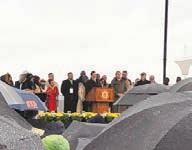

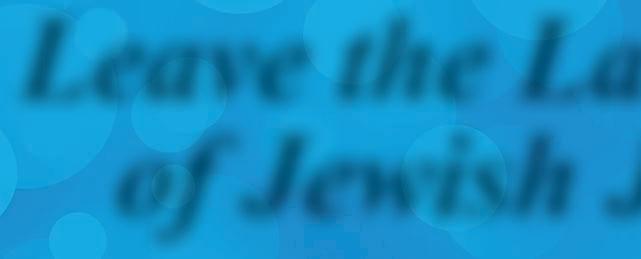
Make a charitable donation to Jewish News and help support Jewish community journalism.

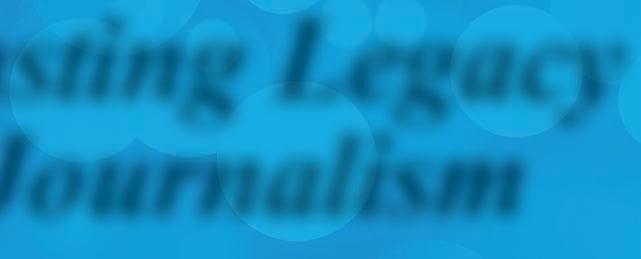
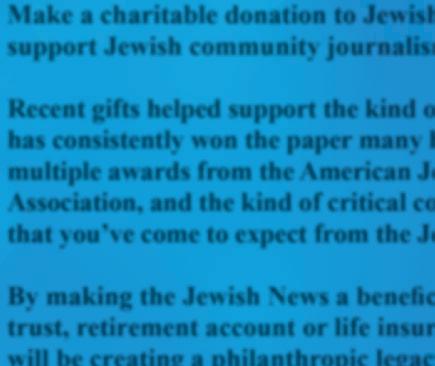



Recent gifts helped support the kind of reporting that has consistently won the paper many honors, including multiple awards from the American Jewish Press Association, and the kind of critical community coverage that you’ve come to expect from the Jewish News.
By making the Jewish News a beneficiary of your will, trust, retirement account or life insurance policy, you will be creating a philanthropic legacy that will help sustain the vibrant voice of Jewish Arizona. Whether you read us in print or online, please help us continue our commitment to bringing you the local Jewish news our community counts on.

Contributions to the Jewish News, a 501(c)(3) organization, are tax deductible. Seek independent professional legal advice before making any change to your plans.
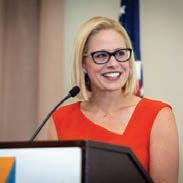


JANET PEREZ | MANAGING EDITOR
It’s become a depressingly familiar rite that parents must go through with their children every time there is a mass shooting. But for Jewish parents, the massacre at a synagogue in Pittsburgh has burned with the anguish of thousands of years. Children have heard and talked about shootings in schools and malls, but talking about a shooting


but still has an impact on prisoners and visitors. But that has not stopped the Aleph Institute from providing its services.
Please subscribe and continue to support JEWISH NEWS with a tax-deductible contribution. Complete the form below or go to jewishaz.com/subplus

Please mail the completeted form with payment to


12701 N. Scottsdale Road, Suite 206 Scottsdale, AZ 85254

Jewish organizations keep prisoners from being forgotten